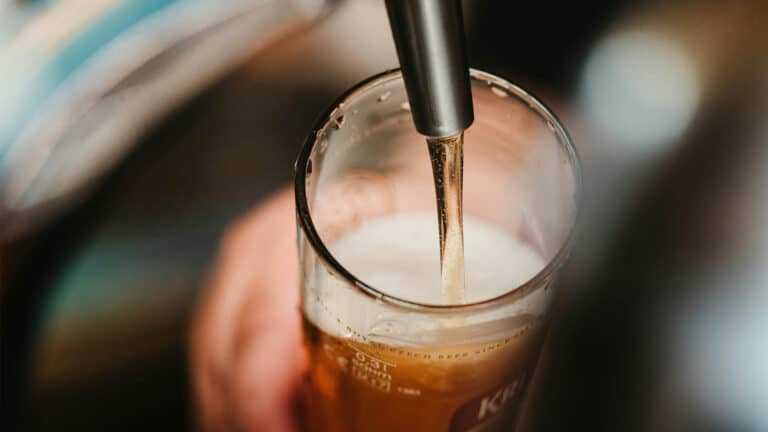Does Alcohol Raise Blood Pressure?
Concerns about how alcohol affects blood pressure have made many people curious. Studies show that drinking alcohol can raise blood pressure, especially if consumed in large amounts over time.
However, alcohol’s effects go beyond just blood pressure—it can lead to other health issues as well. This underscores the importance of drinking in moderation and making informed decisions.
Between 1975 and 2015, the number of adults with hypertension grew from 594 million to 1.13 billion, with the largest increase in lower-income countries. This rise is mainly due to more people in these regions having risk factors for hypertension.
Questions answered in this article:
Our Alcohol Addiction Treatment Centers

Scottsdale Rehab
Luxury Personalized Rehab

HART Rehab
Holistic Luxury Personalized Rehab

Scottsdale Detox
Luxury Medical Detox
What is High Blood Pressure (Hypertension)?
Hypertension happens when the force of blood against your artery walls is too strong, typically measured at 130/80 mmHg or higher. This puts extra stress on your heart and can cause serious issues like heart disease, stroke, and kidney problems.
Drinking too much alcohol can raise your blood pressure because it affects your nervous system. It makes your heart beat faster and your blood vessels narrower, which increases your blood pressure. That’s why it’s important to drink alcohol in moderation. Too much alcohol not only raises blood pressure but also increases the risk of heart problems and other health issues.
Alcohol and Blood Pressure
Alcohol and blood pressure have a complex relationship, where excessive alcohol consumption can cause a rise in blood pressure over time. Drinking alcohol in large amounts triggers the nervous system, which makes the heart beat faster and blood vessels constrict, both of which contribute to hypertension.
This increase in blood pressure can put significant strain on the heart and blood vessels, potentially leading to hypertension, heart disease, stroke, and kidney problems. While moderate alcohol consumption may not cause significant harm, it’s important to be mindful of alcohol intake and make lifestyle changes to help keep the pressure at healthy levels.
How Can Hypertension Lead to Stroke?
Hypertension can lead to strokes in two main ways. First, it can narrow or block the arteries that carry blood to your brain, increasing the chances of blood clots forming and blocking these arteries. Second, it can weaken the walls of blood vessels in your brain, making them more likely to burst and cause a type of stroke called a hemorrhagic stroke.
If hypertension isn’t controlled, the risk of having a stroke goes up significantly. That’s why it’s so important to keep your blood pressure under control to reduce this risk.
Stretched Heart Muscles (Cardiomyopathy)
Hypertension, can cause the heart muscles to stretch and thicken, a condition called cardiomyopathy. This happens because the heart has to work harder to pump blood against the increased pressure in the arteries.
Over time, this strain can weaken the heart, making it less effective at pumping blood. This can lead to heart failure and other serious heart problems. Managing blood pressure with healthy habits and, if needed, medication is important to prevent cardiomyopathy and lower the risk of related health issues.
Irregular Heart Beat (Arrhythmias)
Hypertension makes the heart work harder, causing the heart muscle to thicken and the heart chambers to enlarge. These changes can interfere with the heart’s electrical system, leading to irregular heartbeats, known as arrhythmias.
Hypertension can also damage blood vessels, reducing the flow of oxygen and nutrients to the heart muscle, which can make arrhythmias more likely to develop.
How to Reduce Hypertension?
Managing alcohol consumption is essential for keeping blood pressure at healthy levels. Combining strategies like limiting alcohol, seeking support, eating a healthy diet, staying active, and monitoring blood pressure can help reduce the risks of alcohol-related hypertension.
- Limit alcohol intake: Reducing alcohol consumption can lower blood pressure, as drinking too much can raise it. Sticking to recommended guidelines and drinking in moderation can significantly reduce the risk of high blood pressure.
- Get help for alcohol addiction: Support groups, therapy, or rehabilitation programs can address alcohol dependency and its effects on blood pressure. Professional help provides tools and support to overcome addiction and improve heart health.
- Adopt a healthy diet: Focus on eating fruits, vegetables, whole grains, and lean proteins while cutting back on salt. A nutrient-rich diet and reducing high-sodium, processed foods can help lower blood pressure and support heart health.
- Stay physically active: Regular exercise, like walking, swimming, or cycling, helps manage weight and lower blood pressure. It also reduces stress, which can help alleviate alcohol-related hypertension.
- Monitor blood pressure: Regularly checking blood pressure and consulting with a doctor can help manage hypertension linked to alcohol use. Tracking blood pressure trends allows for timely changes to habits or treatments to protect your heart health.


